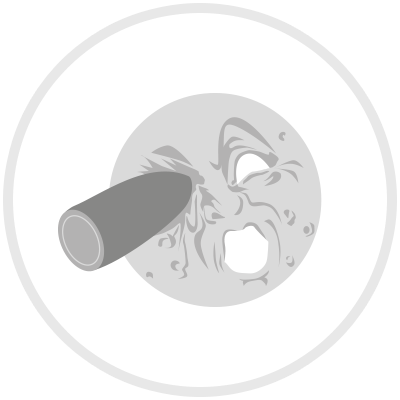From August 24 to September 10, 2025, the eighth edition of "Di là dal fiume," a festival conceived and entirely produced by the cultural association Teatroinscatola with free entry, will enliven the city with 11 events across 8 urban spaces, featuring theater, cinema, installations, and guided tours.
The chosen theme for this edition is the relationship between Art and Human Rights. The locations where the festival will take place are themselves closely connected to the themes that the initiative aims to explore in the capital. One of the characteristics of the Festival is its ability to simultaneously involve multiple city spaces, including unusual places to discover or rediscover.
Taking inspiration from a recent showcase produced by Teatroinscatola & Arch+Hr (an international research laboratory directed by architect Eleonora Carrano) called "Utopia! Architecture and Human Rights," the Roman association seeks to continue investigating the relationship between art and human rights, focusing on climate change, migration, detention, inclusion, humanitarian emergencies, poverty, and mental illness.
Thanks to the collaboration with Francesco Cordio, director and head of the Human Rights International Film Festival (held in Umbria), and the festival Cinema e Diritti Umani promoted by Associazione Europa Unita, it was possible to include a cinema section within the eighth edition of the festival.
The festival opens on August 24 at the Città dell'Altra Economia (CAE) with the screening of "Io Capitano" by Matteo Garrone (David di Donatello for Best Film and Best Director 2024, Silver Lion for Best Director 2023), which tells the odyssey of two young Senegalese men who undertake the dangerous journey to Europe, facing the perils of the desert, the horrors of detention centers in Libya, and the perils of the sea.
Following on August 25 is "Lo Stato della Follia" by Francesco Cordio, a investigative documentary about judicial asylums in Italy. The firsthand accounts of some former inmates in these hospitals are intertwined with footage filmed, without warning, in these "forgotten" places even by the state.
On August 27, again at the CAE, "Cesare deve morire" directed by the Taviani brothers (Golden Bear at the Berlinale 2012, 5 David di Donatello in 2012 including Best Film and Best Director) will be presented. Here, a group of inmates from Rebibbia prison performs Shakespeare's "Julius Caesar." The screening will be preceded by a meeting with Giovanna Taviani.
From August 24 to August 27, Wang Yuxiang's work "Roma Città Aperta" will be on display on the CAE stage. The reconstruction of an oversized wooden doorstop is meant to evoke an imaginary door that opens and remains permanently open
The locations inhabited by the festival are closely connected to the theme of Human Rights.
The Città dell'Altra Economia (CAE), where the films will be screened, is one of the first spaces in Europe entirely dedicated to those economic practices characterized by the use of low-impact environmental processes, equitable value distribution, and a focus not on profit and growth at any cost, but on people and the environment. The City promotes the entire alternative economy of Rome, offering spaces for exhibitions, sales, events, meetings, and training.
On September 2, there will be a meeting with Dario D’Ambrosi, founder and artistic director of the Teatro Patologico. Since 1992, the Association has engaged in a unique and universal work of finding contact between theater and an environment focused on mental illness, involving young people with severe mental issues. Teatro Patologico was invited to represent Italy at the United Nations (UN) in New York to discuss and address disability on a global scale.
On September 4, a visit to the Parco del Santa Maria della Pietà and some installations of the Museo della Mente will take place. Santa Maria della Pietà, inaugurated in 1914 by King Vittorio Emanuele III, was Rome Province’s asylum. From 1967, the facility began reorganizing its care activities, inspired by the deinstitutionalization paths initiated by Franco Basaglia. On May 13, 1978, Law 180 was approved, banning new admissions to psychiatric hospitals, later included in Law 833 that established the National Health Service, with a commitment to "safeguard physical and mental health while respecting human dignity and freedom.” By the end of 1999, the hospital shut down permanently. The Museo Laboratorio della Mente of ASL Roma 1 is a narrative museum documenting the history of the asylum institution. Opened in 2000, it constructed a new exhibition path in collaboration with Studio Azzurro in 2008.
On September 5, at the Complesso Monumentale di Santo Spirito in Saxia, the screening of the documentary "Ombre lucenti" directed by Nino Bizzarri will take place, preceded by a presentation by Federico Primosig (co-curator of “Si può solo dire nulla,” an interview collection with Carmelo Bene published by Il Saggiatore and member of the association “L’Orecchio Mancante”).
The Complesso Monumentale di Santo Spirito in Saxia. This monumental complex, located in the Borgo district of Rome on the area formerly occupied by Agrippina Major’s "Horti" (14 BC – 33 AD), is a significant historical institution that played a crucial role for centuries in caring for the sick, the poor, and orphans. Its origins date back to the Schola Saxonum’s founding in the eighth century, a sanctuary for Saxon pilgrims, developing over the centuries into a large hospital.
The festival will also offer an opportunity to rediscover a space significant for Roman research theater: the Teatro della Visitazione.
Thanks to the availability of ASL Roma 1, the meeting on September 5 will be held at the Complesso Monumentale del Santo Spirito in Saxia, where the legendary company D'Origlia Palmi was located.
On Saturday, September 6, at 12:00, at Cinema Azzurro Scipioni, a city reference for promoting auteur cinema and quality, independent films, the documentary "Storie d’Africa," directed by Piero Cannizzaro, will be presented. Stories of hopes, dreams that remained dreams, failures but also successes. Stories of those who wish to travel to Europe and those who returned, perhaps enduring defeat but managing to rebuild a life in their village, creating a small economy and a dignified life in their own country.
At the Botanical Garden of Rome on Sunday, September 7, at 16:30, a reading of the poem by Giuseppe Conte "I delfini saltano una favola ecologica" (already staged as an installation in the early '90s by Simone Carella) will take place, involving Arianna Ninchi, Pippo Di Marca, and Francesco Suriano.
Speaking of locations, the public will find a green gem of about 12 hectares in the heart of Trastevere, at the foot of the Janiculum. The Botanical Garden of Rome is one of Europe’s most important, with over 3,000 plant species, precious collections (from palms to bamboos), century-old trees, monumental fountains, and a unique panorama with the eternal city as a backdrop. The structure is part of the Museums of the Sapienza University of Rome.
On Monday, September 8, at 21:00, the Upter, People's University of Rome, offering lifelong learning for forty years to hundreds of thousands of people of all ages and cultures, focusing on the social significance of lifelong learning, will host an open rehearsal of the Singers for Emergency choir. Embracing Gino Strada's cause, they sing of human rights and crucial social issues through the universal and unifying message of music.
Thanks to the availability of the Central Institute for Restoration, visits to the women's prisons of the Complesso Monumentale di San Michele a Ripa Grande will be possible. This four-story building, erected in the 17th century, was created to house abandoned and vagrant youths. Four years later, Pope Innocent XII extended the project also to struggling elderly people, continuing assistance for orphaned youths and guiding them into a profession. On September 10, visits to the women's prisons built in 1735, as commissioned by Pope Clement XII, will be conducted, giving the complex its current appearance.
Di là dal fiume
From August 24 to September 10
Free entry
Information and reservations: info@teatroinscatola.it 347.6808868
www.teatroinscatola.it
Web:
www.teatroinscatola.it


 Movies
Movies
 Cultural
Cultural
 347.6808868
347.6808868
